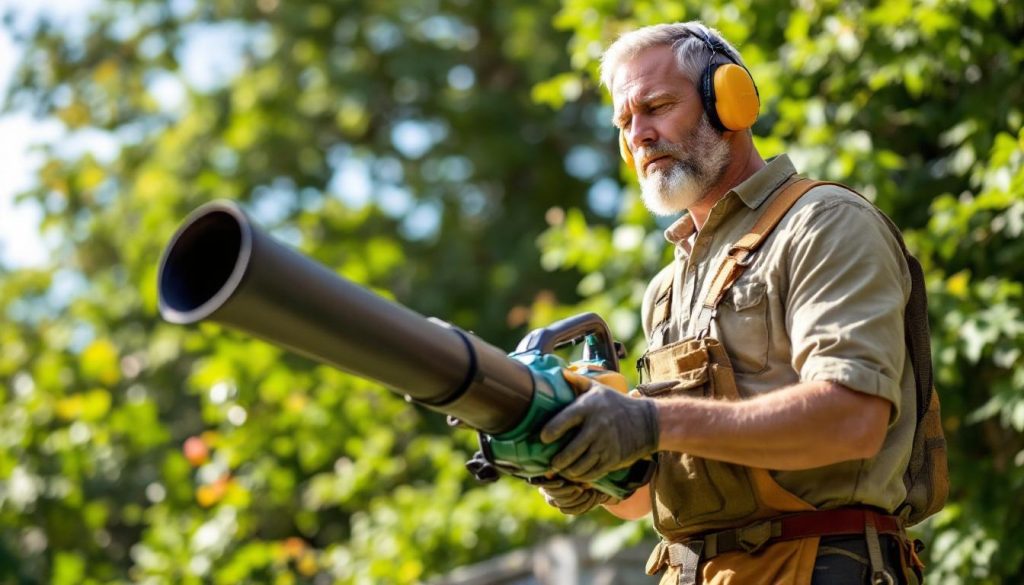As summer noise levels surge with the hum of lawn mowers, leaf blowers, and other landscaping equipment, alongside the explosive sounds of fireworks and outdoor events, a West Virginia University audiologist warns that the risk to hearing health is a pressing concern. Eric Johnson, an assistant professor in WVU’s School of Medicine Division of Communication Sciences and Disorders, highlights that exposure to the loud noises common during this season can cause irreversible hearing damage in surprisingly short periods. He stresses that protection, such as earplugs or earmuffs, is essential to prevent permanent hearing loss, which is painless and progressive.
Johnson explains that the delicate hair cells in the inner ear suffer cumulative damage from repeated loud noise exposure, creating permanent harm. While hearing aids can amplify sounds, they often fail to fully address the loss of speech clarity that heavily impacts sufferers. He compares the danger to sun exposure: just as stronger sunlight causes faster skin damage, louder sound speeds up hearing damage. According to guidelines from the National Institute for Occupational Safety and Health (NIOSH), exposure to noise at or above 85 decibels should be limited to a maximum of eight hours without protection. However, in the case of louder equipment—such as gas-powered leaf blowers emitting sound levels above 100 decibels—harmful effects can occur in just 15 minutes.
The risk extends beyond those operating noisy equipment; bystanders in close proximity for prolonged periods are also vulnerable. Johnson urges anyone within a few feet of loud devices—including leaf blowers, chainsaws, or race car engines—to wear hearing protection. Simple, accessible solutions like foam earplugs or earmuffs can reduce noise exposure by 15 to 30 decibels, significantly lowering the risk of hearing damage. He also notes that smartphone apps like NIOSH’s Sound Level Meter can help users monitor and receive alerts about unsafe noise levels in real time.
The issue is well-documented in landscaping safety literature, which concurs that tools like leaf blowers and chainsaws frequently exceed 100 decibels, making ear protection a vital consideration for yard workers and hobbyists alike. Experts highlight that such equipment noise levels are comparable to rock concerts or racing events, where prolonged exposure without protection similarly risks permanent hearing impairment. High-fidelity earplugs designed for music lovers are available to preserve sound quality while lowering harmful volume levels, making them suitable for concert enthusiasts who also wish to protect their hearing.
Guides on ear protection for yard work recommend products offering higher Noise Reduction Ratings (NRR), with some earmuffs reducing noise by up to 37 decibels and providing greater comfort for extended use. Budget-friendly earplugs, including those equipped with audio connectivity, balance durability and usability, enabling wearers to hear surrounding sounds without exposing their ears to damage. Proper fit and regular breaks during continuous exposure are also advised to maintain hearing health during noisy outdoor activities.
In essence, the message from health professionals and safety experts alike is clear: noise-induced hearing loss is preventable but requires proactive measures. As summertime activities ramp up sound levels, vigilant use of hearing protection becomes a simple and effective way to safeguard a sense critical to communication and quality of life for years to come.
📌 Reference Map:
- Paragraph 1 – [1], [3], [7]
- Paragraph 2 – [1], [2]
- Paragraph 3 – [1], [3], [6], [7]
- Paragraph 4 – [1], [3], [7]
- Paragraph 5 – [1], [4], [5], [6]
Source: Noah Wire Services

